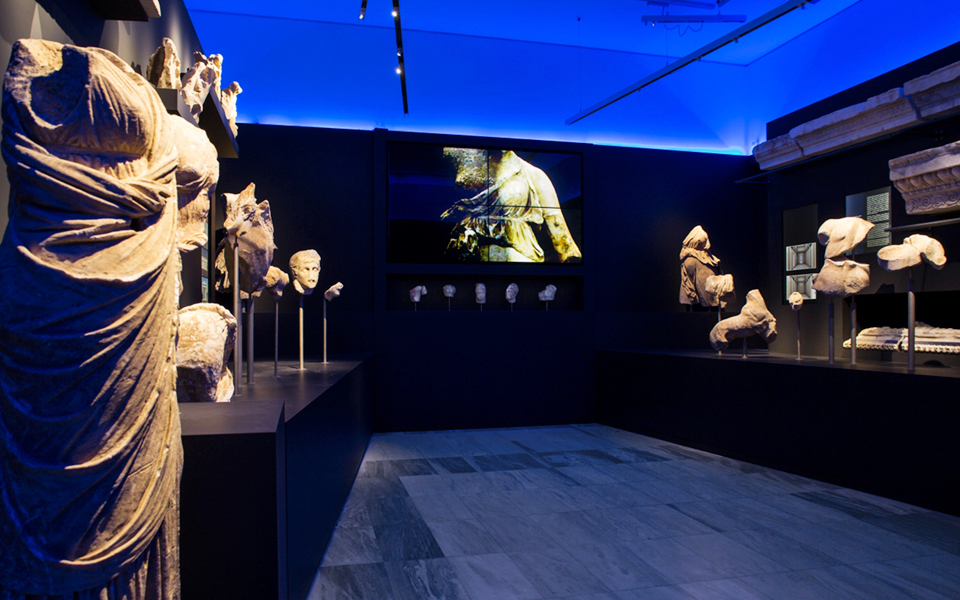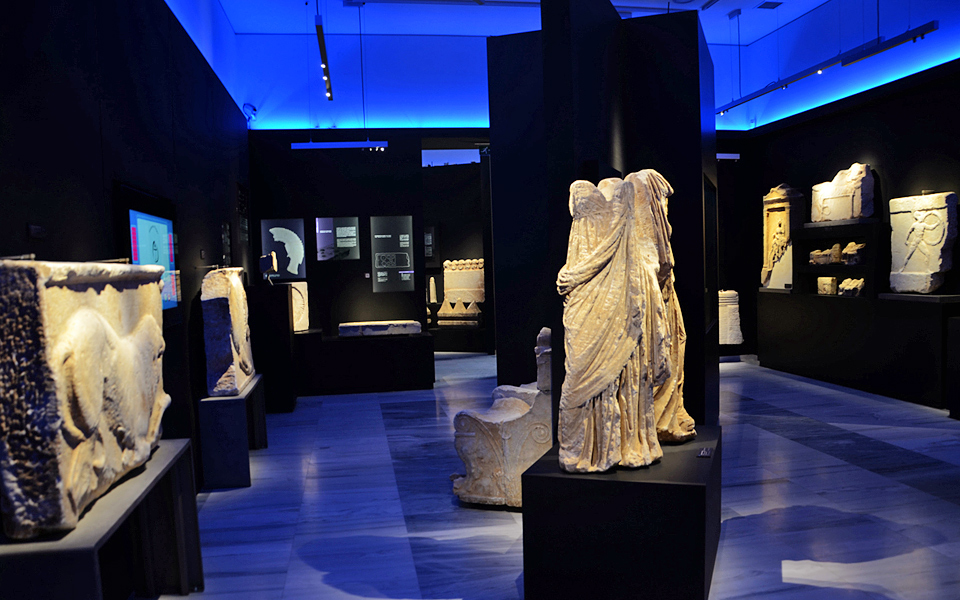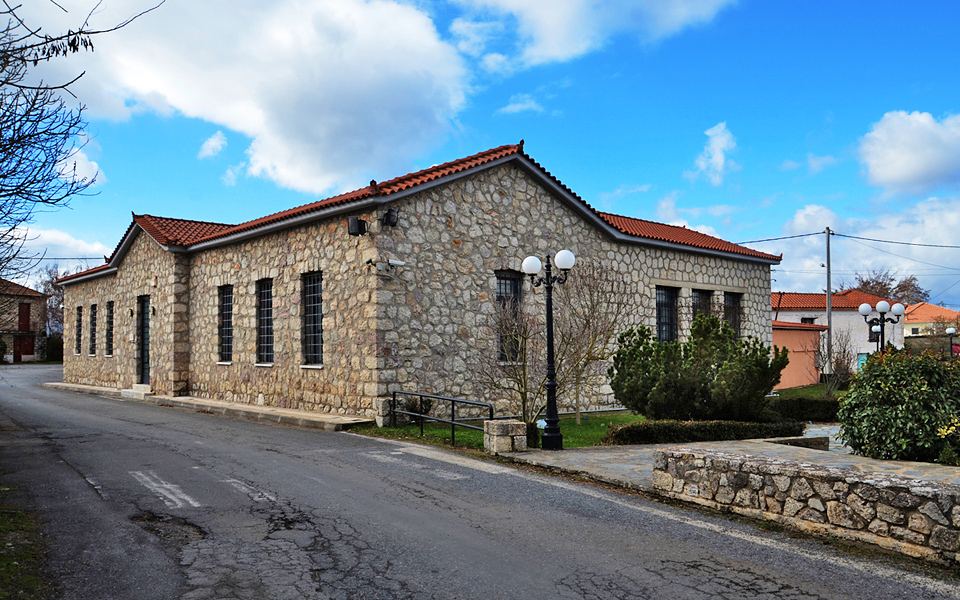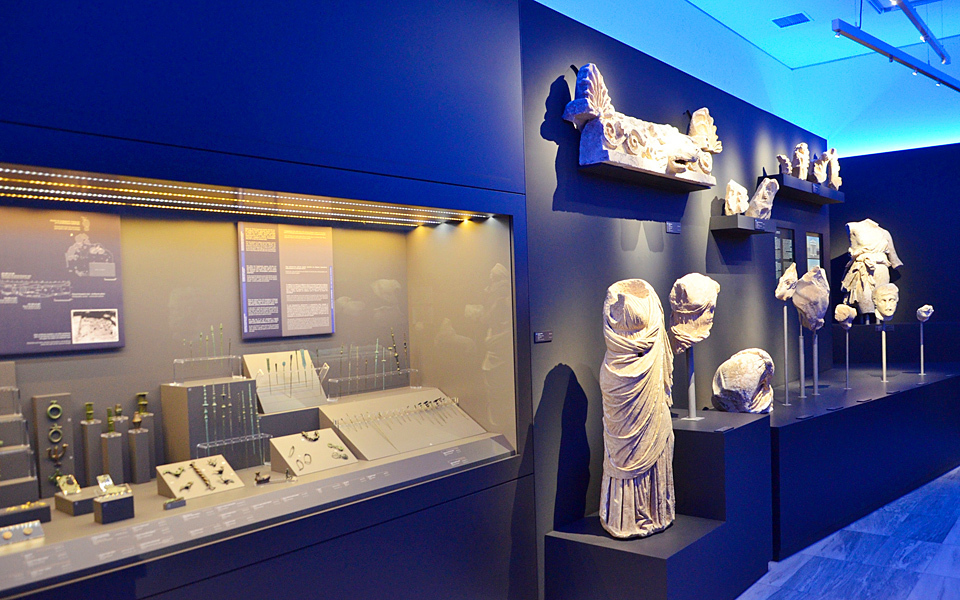At a time when in Greece good news seems increasingly hard to come by, the prize awarded to the Archaeological Museum of Tegea – recognizing its “outstanding achievements” by the jury of the European Museum Forum in San Sebastian this April– is more than encouraging.
A small jewel located in the Peloponnese, the museum tells the story of the birth and evolution of the most powerful city of ancient Arcadia, Tegea.
The museum was targeted in a major burglary in 1992. The whereabouts of the famous head of Telephus, an authentic work by the sculptor Skopas, remain unknown. Other stolen items, such as the marble head of Asclepius and a relief depicting Dionysus, Artemis and Heracles were found and in 1998 returned to the Museum. And when renovation began in 2009, the museum turned its affliction into an advantage: funds poured in to pump up its security, and the burglary became an important symbol of its recent history, enhancing its importance and cultural prestige.
An enormous black-and-white photo of the missing head sits at the entrance, immediately attracting the eye of any visitor and reminding people “not to forget the struggles for the return of stolen antiquities,” says Dr. Anna Vasiliki Karapanagiotou-Economopoulou, the head of the Ephorate of Arcadian Antiquities for the past six years. Another large photo of the head of Hygeia is a reminder that the treasure, found in Tegea, resides in the National Archaeological Museum in Athens.
“Funds poured in to pump up its security, and the burglary became an important symbol of its recent history, enhancing its importance and cultural prestige.”



The museum, which reopened in 2014 after seven years of refurbishment, is a pleasant destination for the visitor who rolls into the village of Alea, two hours from Athens and just 15 minutes from Tripoli. Its makeover included the addition of digital archaeological applications, supported by high-end devices. These new technologies help visitors visualize the rise and evolution of the city-state of Tegea by focusing on some key sites (such as the erection of the famous temple of Athena Alea), and place the exhibited objects into historical context.
The judges at the European Museum Forum concluded that that “the museum uses the rise of the polis, the city-state, as its central theme; it has placed the visitor at the center of its thinking with integrated, state-of-the-art electronics, offering a coherent interpretive strategy and a clearly structured narrative.”
Dr. Karapanagiotou-Economopoulou received the award together with Head Archaeologist Grigoris Grigorakakis.
The spotlight from winning a division of the European Museum of the Year Award (established in 1977, under the auspices of the Council of Europe), brought new – both foreign and local – visitors to the site, and the team responsible for its maintenance are hopeful that more will follow, reiterating that Tegea is finally receiving the international recognition it deserves.
The museum currently shuts at 3pm, but has requested to join the list of museums with extended opening hours.
“Its makeover included the addition of digital archaeological applications, supported by high-end devices.”












